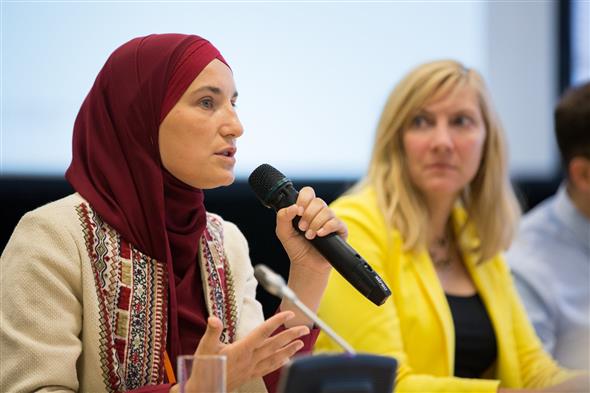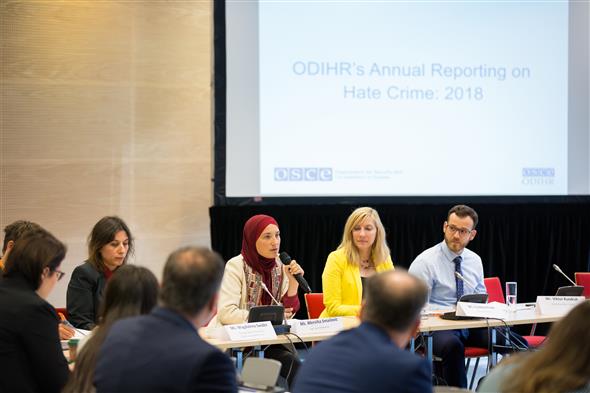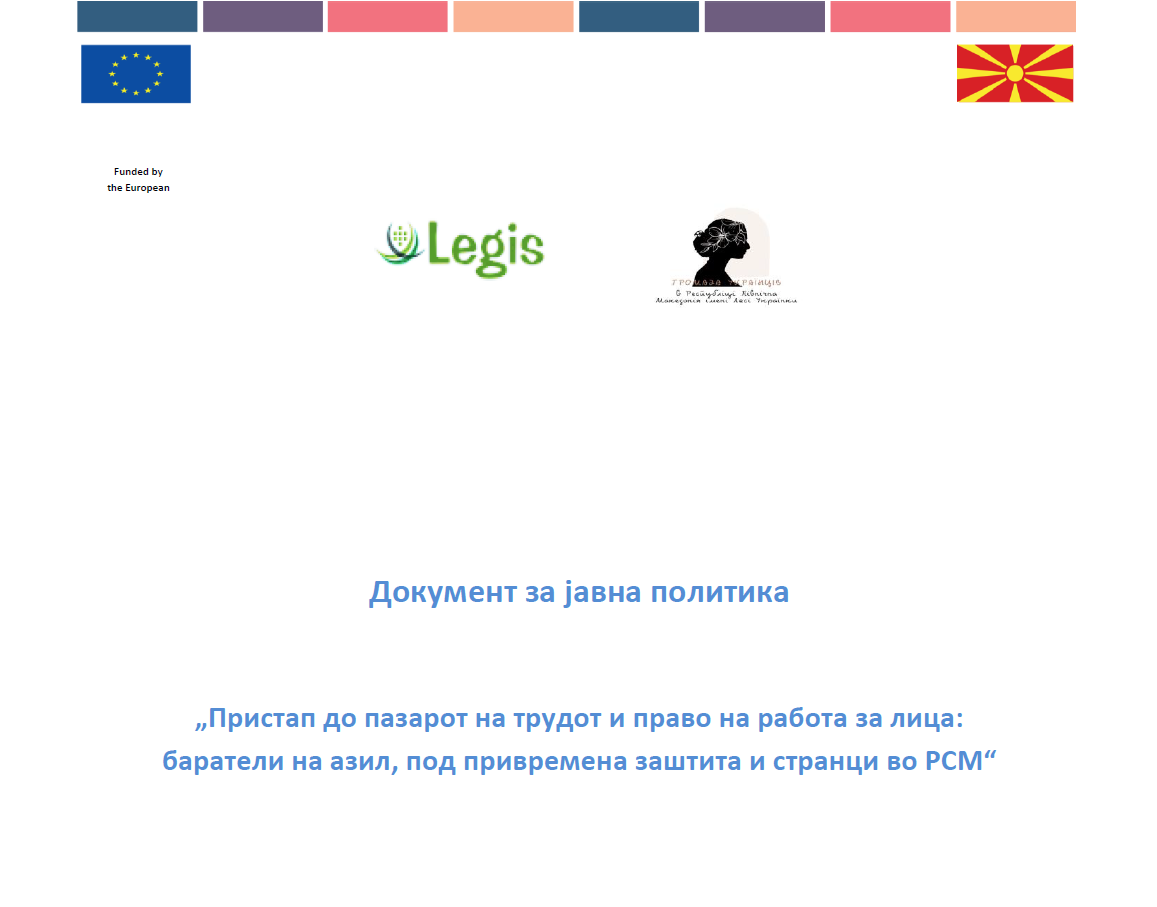Among the participants, was also, the president of NGO LEGIS, Mersiha Smailovikj, where she stated:
“Fear of the refugees and migrants is present in the society, especially when the Governments are treating them “as a threat to national security”. The predominant public perception is that the…
HATE CRIME ON THE AGENDA OF Human Dimension Implementation Meeting in Warsaw
Hate crime continues to threaten the security of individuals and entire societies, as evidenced by 2018 data from the OSCE Office for Democratic Institutions and Human Rights (ODIHR) that was presented on 25 September 2019 in Warsaw. The presentation took place during ODIHR’s annual human rights conference, the Human Dimension Implementation Meeting. Among the participants, was also, the president of NGO LEGIS, Mersiha Smailovikj, where she stated:
“Fear of the refugees and migrants is present in the society, especially when the Governments are treating them “as a threat to national security”. The predominant public perception is that the refugee issue has only negative consequences for the country. The level and quality of hate speech takes on a frighteningly different dimension when people feel encouraged by political leaders who are echoing and promoting prejudices and resentments. The resulting acceptance of hate speech creates a general climate in society that facilitates the increasing willingness to commit or tolerate acts of violence against these groups.

Various groups in society are vulnerable to ideological and political rhetoric, including such that openly expresses racist and xenophobic or anti-immigrant attitudes. The hate speech has already become a common and persistent phenomenon in the Balkan public life.”
Cristina Finch, Head of ODIHR’s Tolerance and Non-Discrimination Department, said:
“Victims of bias crimes need to see official recognition of the crime as a hate crime. Their needs differ based on how they were attacked, by whom, and on what grounds. But in these differences, all hate crime victims are also similar – being attacked simply for who they are.”
Participants were able to learn from those who work most closely with victims during a discussion with representatives of three civil society organizations providing support to victims of hate crime. They spoke about how victims often lack trust in the authorities and instead seek assistance from NGOs, raising questions about victims’ access to justice, protection and support.
Following an assessment of support for victims of hate crime across the region, ODIHR has concluded that OSCE participating States need to do more to build victim support structures to bridge the state-civil society divide. Police and other officials have to be able to understand the needs of hate crime victims and refer them to a suitable service, which often comes from civil society.

Photo by (OSCE/Piotr Markowski)




